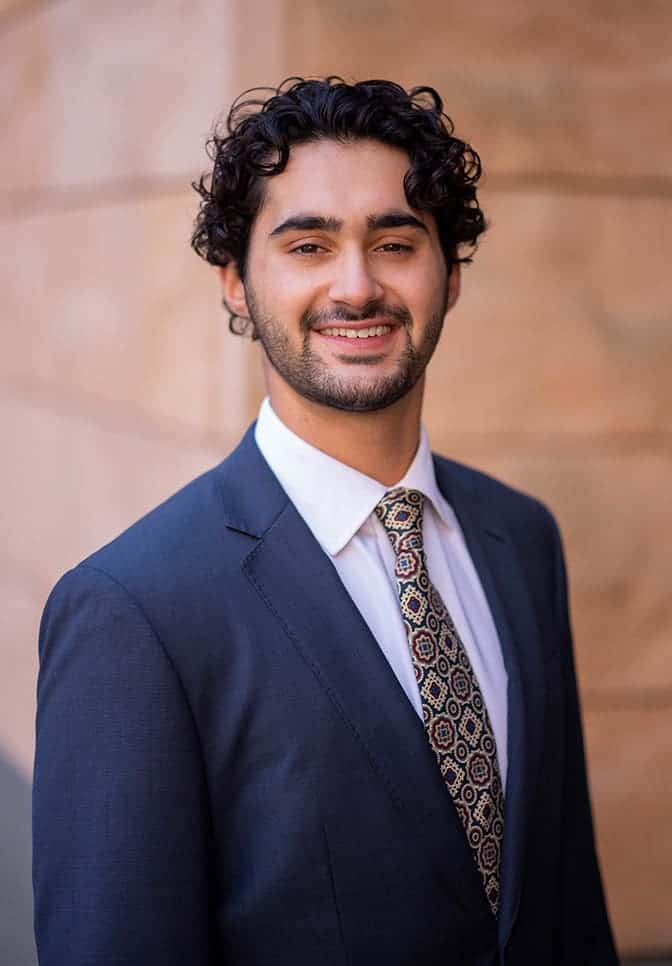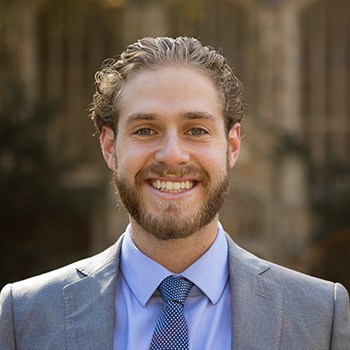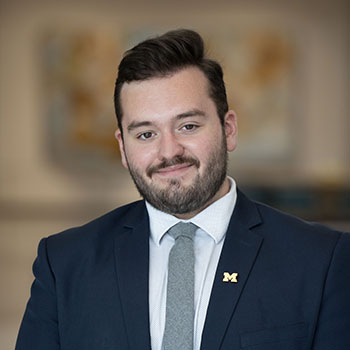
A chat with CEE’s first Smart Infrastructure Finance alumni
Smart Infrastructure Finance studies how data can be integrated with financial practices to develop previously unachievable infrastructure assets and reach sustainability goals.

Smart Infrastructure Finance studies how data can be integrated with financial practices to develop previously unachievable infrastructure assets and reach sustainability goals.
Get to know Ben Shale and Jake Uchitelle-Cohen, the first two graduates of our department’s new Master of Engineering (MEng) degree program in Smart Infrastructure Finance. After finishing their degrees in May 2021, they took some time to share their experience with the program.
Why did you decide to pursue an MEng in Smart Infrastructure Finance?

Ben Shale: During my sophomore year of undergrad, at the time majoring in environmental engineering, I was reading about different professors’ research on the CEE website and was intrigued by the work Professor Peter Adriaens was involved in with the Center for Smart Infrastructure Finance. I met with him and we chatted for about an hour, ultimately leading to a research position with him working on water embedded risk in stocks. This conversation marked the beginning of my deep interest in the digitization of infrastructure and my path to pursuing an MEng in Smart Infrastructure Finance.
What intrigued me about the MEng program is the multi-disciplinary approach to engaging in this new space. This unique program covered the essential courses to becoming well versed and familiar with high-level technical engineering, finance, business, and policy in the infrastructure space, creating a well-rounded toolkit that I knew would be fundamental to my future career. This program is preparing students to engage in the next generation of Smart Infrastructure Finance unlike any other.
Jake Uchitelle-Cohen: Coming from a background in the Ross School of Business, I wanted to get a degree that provided me with more technical experience and challenged my current way of thinking. This master’s degree was the perfect blend of technical engineering and finance without being too heavy on either end.
Could you describe your experience in the program?
Shale: My experience in the program had gone above my expectations. Although there were only a few students in the program, I was able to engage with many students from a wide range of disciplines, creating an environment that encouraged collaboration and diversity. The courses were also truly fascinating. I felt constantly intrigued by the new course material and was able to hone my professional interests by listening and talking to guest speakers in some of the classes. Lastly, one of the most rewarding aspects of the program for me was the research I was involved in focusing on business and financial models for vehicle-infrastructure cooperation to scale automated driving. Conducting research has been an excellent learning experience and has helped shape my career interests.

Uchitelle-Cohen: I had a fantastic experience in the program. Being one of the first students to go through the program, I was unsure what to expect but found myself pleasantly surprised. The courses were well aligned to create a consistent narrative that guided our program. Coming from Ross, I was forced to take courses that I previously had no experience in but pushed me to think in new ways. Additionally, the research that I was able to participate in was incredibly interesting and has helped shift my future career aspirations.
How does your master’s degree differentiate you from others?
Shale: Understanding how financial and business models inform engineering design specifications and vice versa is invaluable to me as I begin my career working to advance sustainability in the built environment. Supplementing my civil engineering background with this program has equipped me with a diverse skillset that opens doors to a wider array of industries and job functions unattainable without this degree.
Uchitelle-Cohen: As a result of the degree, I feel much better equipped to analyze built infrastructure investments, and come up with alternative financing strategies that use data streams as a part of the capital stack. This thinking and methodology are far from mainstream in the finance industry and I would not be able to bring this new perspective to the table without this degree.
What are your career plans after graduation?
Shale: After graduation I will be working as an Associate in Infrastructure Advisory within the Deal Advisory & Strategy service at KPMG. I hope to work on projects that promote accessibility and efficiency in public transportation, as well as those that advance decarbonization in major infrastructure projects.
Uchitelle-Cohen: Upon graduation, I am going to work in renewable energy as an Analyst on the Origination, Finance and Deal Structuring team at Altus Power. Down the line, I hope to work in a project finance role working to finance renewable infrastructure or a role that allows me to help find financing for sustainable infrastructure in lower-income areas. Generally, I would like to help sustainable infrastructure become commonplace beyond simply areas with enough capital to afford it.
How would you sum up the program in one sentence?
Shale: This program elevates a traditional civil or environmental engineer into a business-minded engineer who can fluently talk to both technical engineers and financial professionals.
Uchitelle-Cohen: This is a program for engineers who want to learn more about traditional finance and for business students who want to learn more about the assets that need financing.
Learn more about the MEng degree in Smart Infrastructure Finance.

Marketing Communications Specialist
Department of Civil and Environmental Engineering